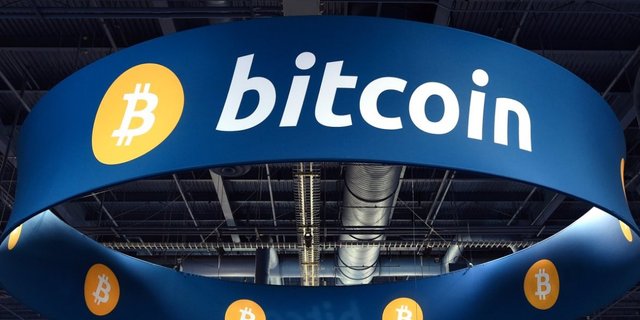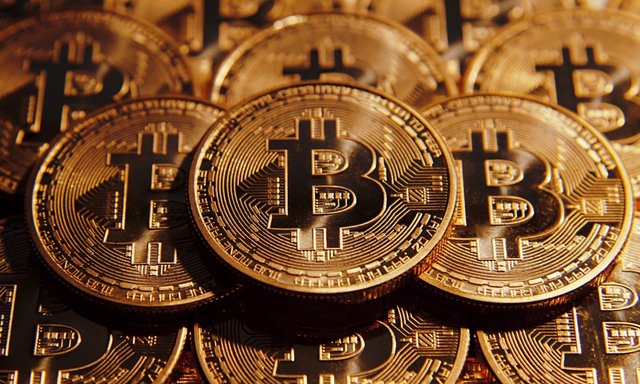Bitcoin the virtual currency revolutionising the market.
Bitcoin, since the first time it appeared this currency has generated doubts about its fast expansion and due to the fact of not being subject to any banking control or physical backup, as any other currency in the world.

The word bitcoin still does not exist in the dictionary, but it is increasingly often heard in the voice of economic analysts and financial columnists around the world. But what is and how does the 21st century currency work?
What is bitcoin and how does it work?
The Bitcoin is a virtual currency that does not belong to any particular nation, which allows it not to be regulated or controlled by any bank or financial institution. Traditional currencies (such as dollar or euro) are issued by monetary authorities or governments, which can exercise control over them, but is not the case of BTC.
Basically, a bitcoin is a string of encrypted numbers that conform to an algorithm so that they can be processed by valid currencies. These codes are associated with an address indicating who the virtual currencies belong to, but anonymously, since the owners of the bitcoins are the only ones who can know that address and transfer them in a simple way through the INTERNET, as is done with the ‘e-mails’.
Who creates the bitcoins?
Bitcoins are generated on the Internet by users who are known as ‘miners’ in financial jargon. ‘Mining’ BTC is the process of performing mathematical calculations using compute power to confirm such transactions. In exchange, the ‘miner’ is rewarded with a certain amount of bitcoins to continue investing, buying or paying with this electronic currency on line or regular establishments.
How much is a bitcoin?
Because this virtual coin works as a way of payment and retains its value for supply and demand, when the latter increases, the price goes up, and vice versa. To know the current price of the btc are several calculators on line which allows us to know how much it costs depending on the city and the type of exchange that is needed.

According to the Spanish Bank BBVA Bancomer, today, there are about 11 million of BTC in circulation, and it is expected that by the year 2041 this figure reaches 21 million of electronic currencies in the world. It should be noted that, since the creation of the Bitcoin, back in 2009, its value has multiplied by about 50 times and is more reliable and stable than traditional currencies. At the close of this article, a bitcoin is equivalent to US $2,667.
Only in 2016 the BTC exceeded the value of all the currencies emitted by the banks and, even in March of this year, it surpassed the price of gold on a worldwide level. The financial market has well received the btc, so much so that, on May 22, the word btc was located in the ‘Top 5’ Google searches in the U.S., and in the ‘Top 10’ of the same search engine in Mexico and Canada.

The future of Bitcoin
The use of this currency provoked countries like Japan to jump in to the current of BTC. This year at least 250,000 stores in are expected to receive such legitimate transactions in June or July. Mexico is one of the countries in Latam that has seen an place of opportunity in this sector.
Bitso, the Mexican company is a very good example of this. At the end of 2016 it had captured about 30,000 new customers, just in 27 months. 20,000 Of them, had joined the company in the last quarter of that year. While Donald Trump was crowned as President of the United States and the Ford car plant abandoned his project in the Mexican state of San Luis Potosi, Bitso had a great day and nor the political neither the economic environment affected it at all, unlike other currencies.
The market so-called ‘criptocurrencies’ or ‘criptocoins’ is less vulnerable to cyber attacks, unlike Dollar or Euro, which recently were affected by the WannaCry virus, a computer worm that was in charge of encrypting the files on a computer and calling for a ransom payment before allowing access to them again.
The future of bitcoin lies in that kind of crisis, as it proves the reliability of technology and places innovation as an place of opportunity and growth for the financial realm, which in recent years has found greater penetration through digital platforms and electronic payment methods, for instance, in places communication and profitability of traditional economic systems is managed.
Congratulations @jagg1! You have completed some achievement on Steemit and have been rewarded with new badge(s) :
Click on any badge to view your own Board of Honor on SteemitBoard.
For more information about SteemitBoard, click here
If you no longer want to receive notifications, reply to this comment with the word
STOPDownvoting a post can decrease pending rewards and make it less visible. Common reasons:
Submit
Hi! I am a robot. I just upvoted you! I found similar content that readers might be interested in:
https://www.forex-giants.com/future-bitcoin/
Downvoting a post can decrease pending rewards and make it less visible. Common reasons:
Submit